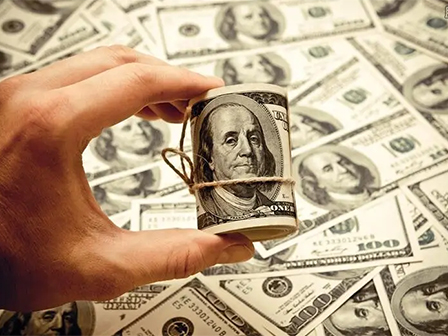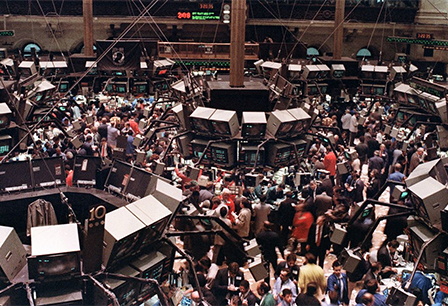There have been a LOT of changes on Wall Street since I first joined CNN in November 2001.
The Dow was trading just below 10,000 at the time. It’s now a little above 33,000. And some of the companies that were still among that blue chip average are no longer in the Dow. Eastman Kodak (KODK) was a Dow stock. So were Alcoa (AA), GM (GM) and Philip Morris (PM).
Oil prices were hovering around $18 a barrel more than 21 years ago, an unimaginable level given its current price of about $78 — and it’s been even higher in recent years.
Amazon (AMZN) still was generating the majority of its revenue from the sale of books, CDs and DVDs. Google (GOOGL) was a young, privately held startup in late 2001 and Facebook didn’t exist. Nor did YouTube, Twitter, Snapchat (SNAP) or TikTok. Bitcoin and other cryptocurrencies were nearly a decade away from being created.
You get my point. The market landscape now is starkly different than it was two decades ago. That being said, I’d like to think that many rules of investing remain constant.
If I’ve learned anything in my nearly three decades as a financial journalist (I started my career just out of college in 1995 at the long-defunct Financial World magazine) it’s that “this time is different” is perhaps the biggest myth in investing. There are variations on that theme but, to quote Led Zeppelin, “the song remains the same.”
Today’s meme stocks may be popular with the Robinhood crowd for example, but before individual investors were touting the likes of GameStop (GME) and AMC (AMC) on Reddit (which was founded in 2005, by the way) individual investors chatted about hot tech stocks on message boards such as RagingBull.com, Silicon Investor and Yahoo Finance.
David LEFRANC/Gamma-Rapho/Getty Images
There always have been fads in tech, and momentum investing has moved markets for decades. Traders will always seek to capitalize on headlines. Heck, my first story for CNN – as a freelancer in October 2001 – was about small biotechs that were surging due to concerns about anthrax and other possible bioterror attacks in the wake of 9/11.
Over the years I’ve seen dot coms crash and rise again. I’ve written about B2B (aka business-to-business) software companies, cloud computing firms, IPOs and SPACs, and cannabis/pot stocks. There have been more flavors of the month in the stock market during my CNN career than at your local Baskin-Robbins.
Pay attention to prices
That’s why investing strategists say most people should continue to invest for the long haul and try to have a truly diversified portfolio. Hint: If you own big stakes in Tesla (TSLA) and Ford (F) and not much else, having exposure to both electric vehicles and gas guzzling cars doesn’t count as a diversified portfolio.
Still, experts also remind investors to not be afraid of taking some risks. It’s fine to have a lot of your money in S&P 500 ETFs and other funds that will track the broader market. But it’s also okay to channel your inner Warren Buffett and look for individual winners.
“Passive investing should be a core of your portfolio, but that doesn’t mean there’s not a place for actively picking stocks,” said Andrew Patterson, senior economist at Vanguard.
You may be unable to go through a lifetime completely avoiding stocks that totally implode, but if you also own big, long-time winners (think Buffett’s Berkshire Hathaway (BRKB), Walmart (WMT) and Microsoft (MSFT)) that can more than make up for any dogs in your portfolio.
“A few very good decisions can make the difference and make up for any duds,” said Bill Stone, chief investment officer with The Glenview Trust Company. “You have to have humility and accept you will make mistakes. But you have to let your winners win.”
This means looking for stocks that are on sale. Investors sometimes make the error of ignoring stocks that have been beaten up a bit for fear that they will never rebound. Stocks that get unfairly punished can wind up as great bargains.
“If you have a plan to get through the good times, it should be a plan to get you through more challenging times as well,” said Vanguard’s Patterson.
Cash is king
Along those lines, I wrote a story in January 2003 about Apple (AAPL). Many on Wall Street and Silicon Valley were writing it off as a niche maker of Mac computers and ignoring its newer iPod and iTunes digital music businesses.
I argued that Apple wasn’t getting enough credit for the tons of cash on its balance sheet and for its expansion into new growth areas. (The first iPhone was four years away.)
Apple’s stock was trading at 23 cents a share (adjusted for splits) at the time – yes, you read that right – and its market value was a trifling $5.4 billion. Apple shares are now worth more than $145 apiece and the company’s market cap is $2.3 trillion.
“Valuation always matters,” Stone said. “Don’t overpay.”
Charlie Munger, vice chairman of Berkshire Hathaway Inc., listens before the Daily Journal Corp. shareholder meeting in Los Angeles, California, U.S., on Thursday, Feb. 14, 2019.
Another key takeaway for investors? Don’t sweat what you can’t control. Inflation jitters and worries about Federal Reserve rate hikes rocked the markets last year and have led to more volatility this year as well.
But it’s impossible to time the market. You will never pick exactly when a recession begins or ends or whether stocks are at a top or bottom.
“We still continue to believe that over long periods of time, stocks provide a reasonable hedge against inflation,” Patterson said. “Bonds are back, too, given where yields are. They provide diversification and income.”
So as I get set to leave CNN, the current market landscape may look a bit different now than it did when I first started. But investing for the long term is as savvy an idea in 2023 as it was at the beginning of this century.












